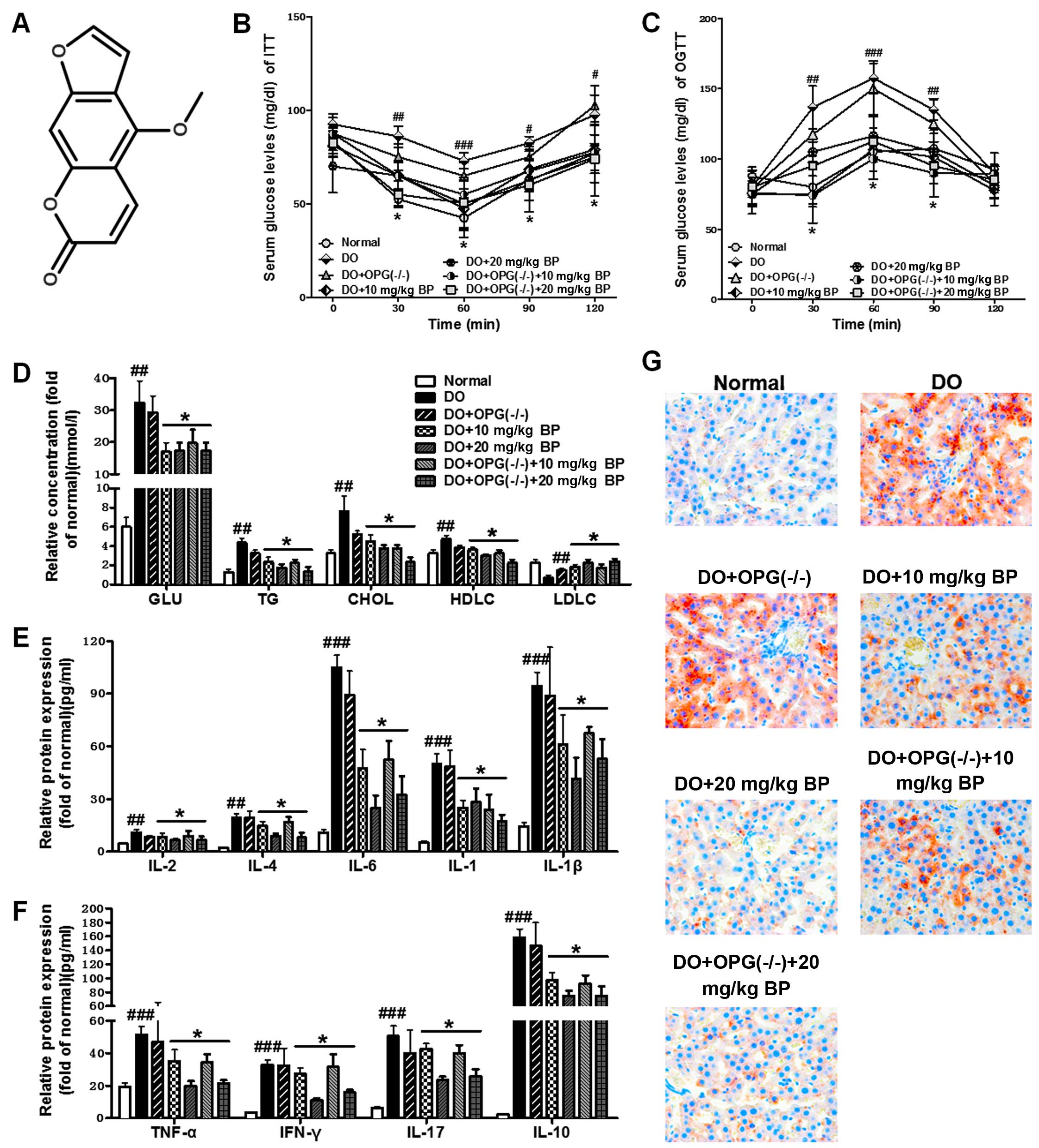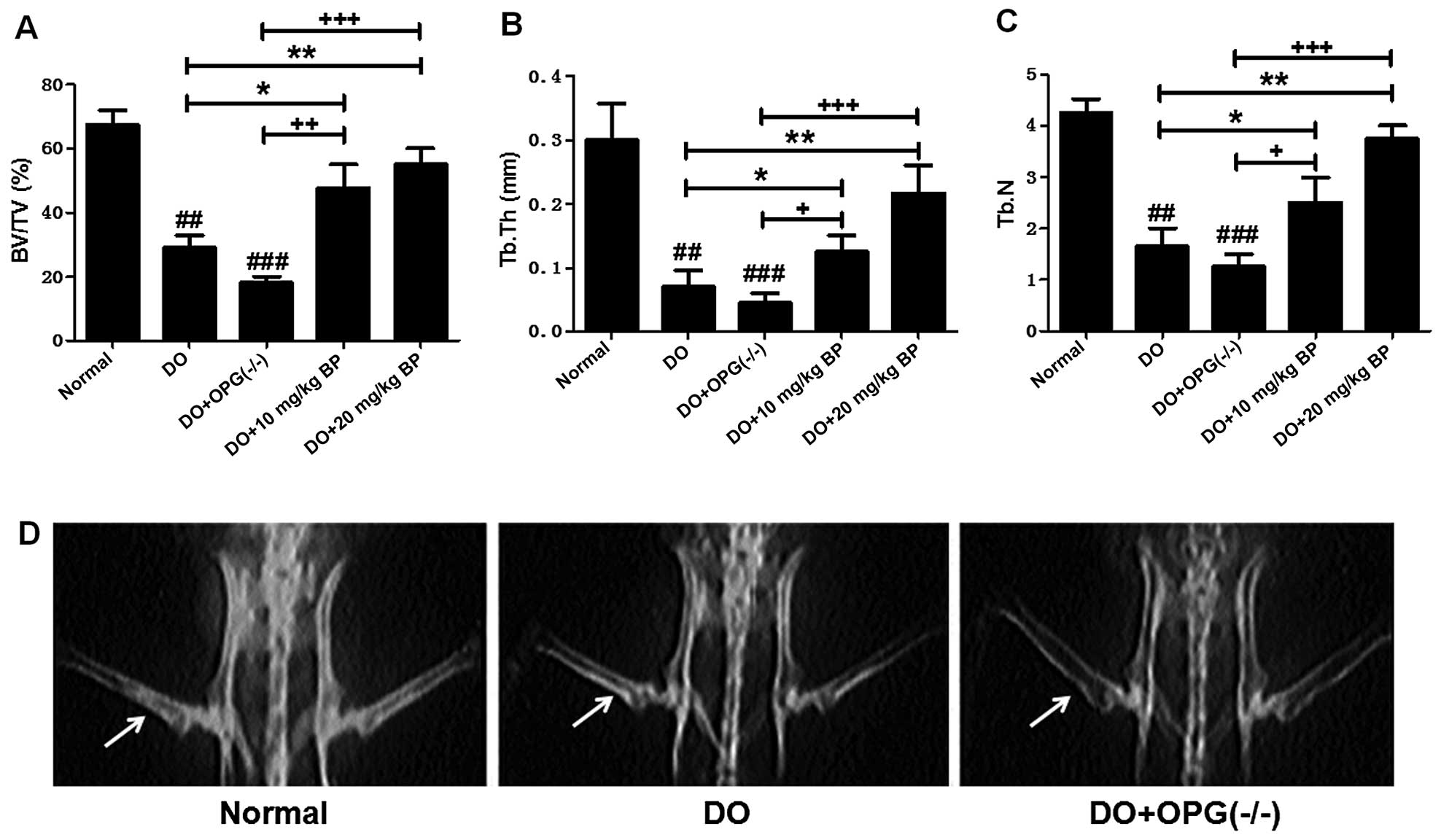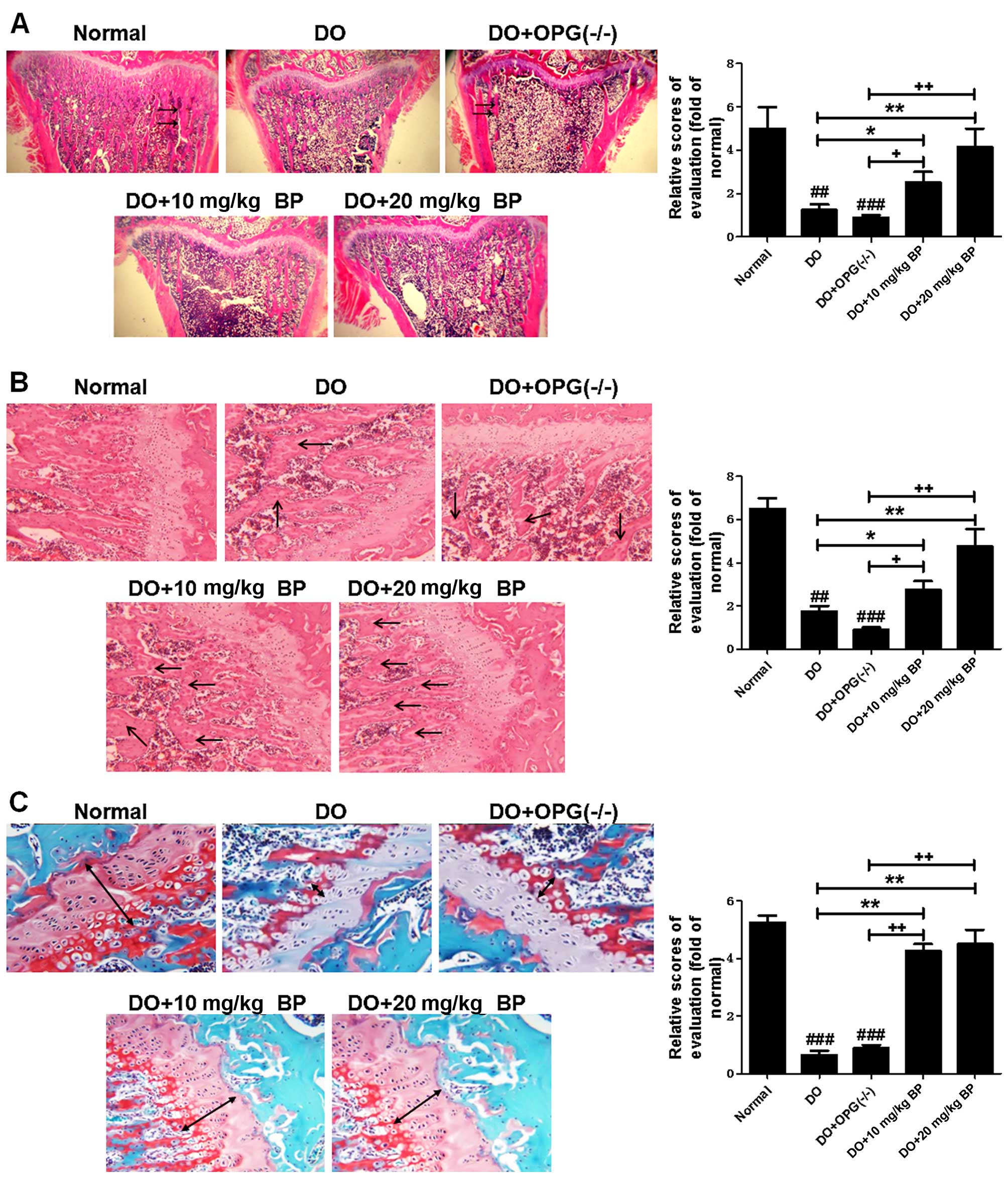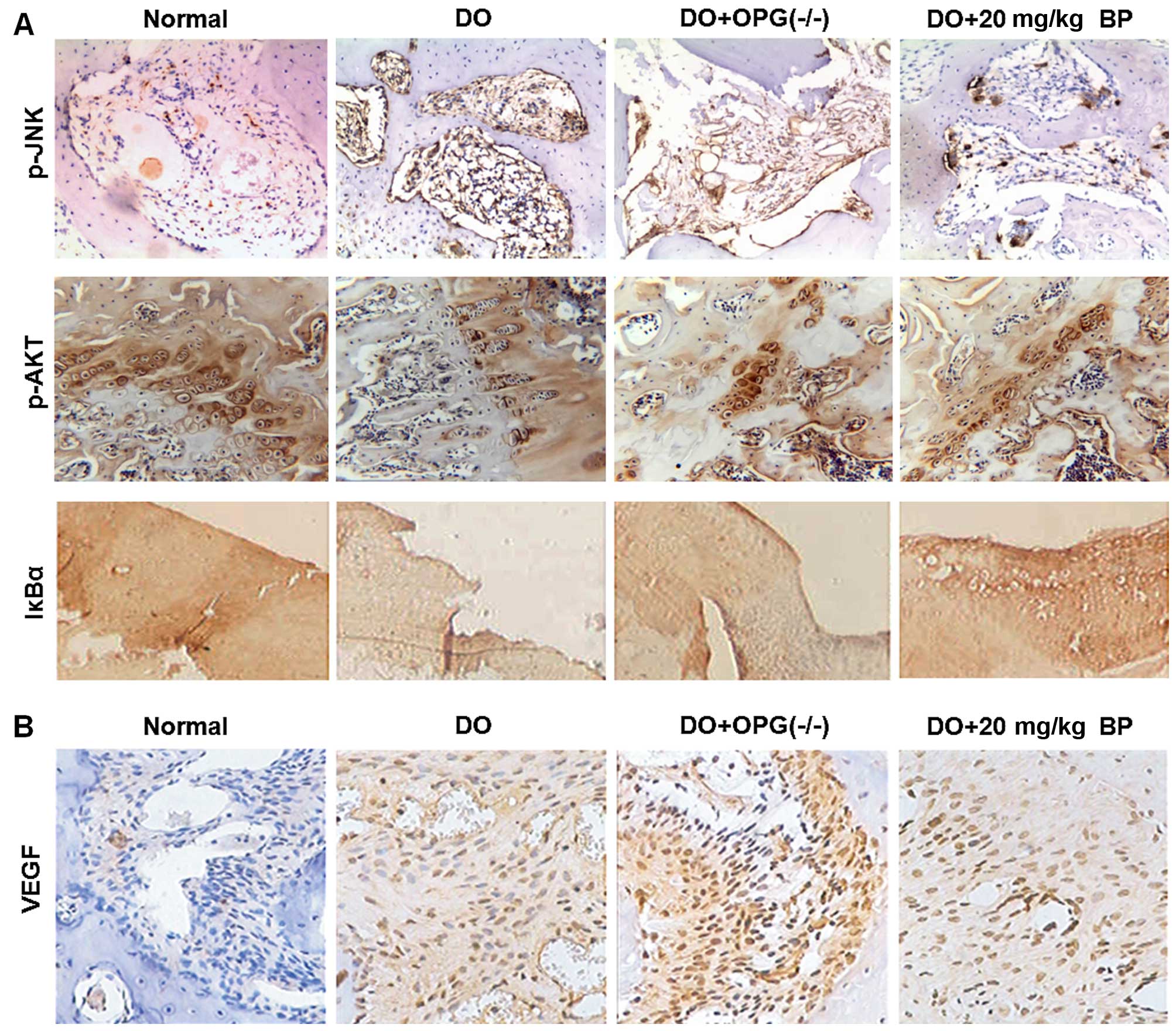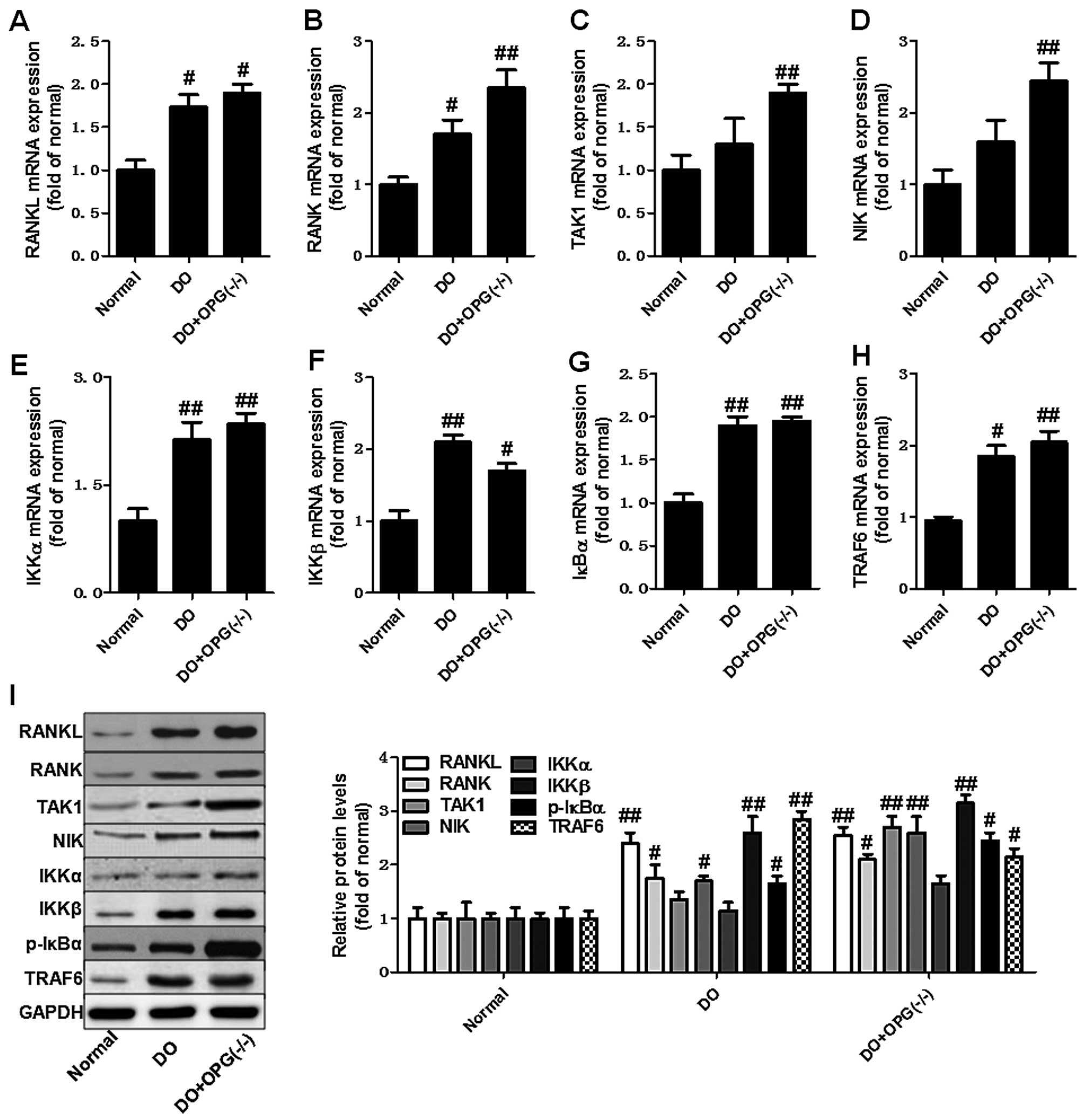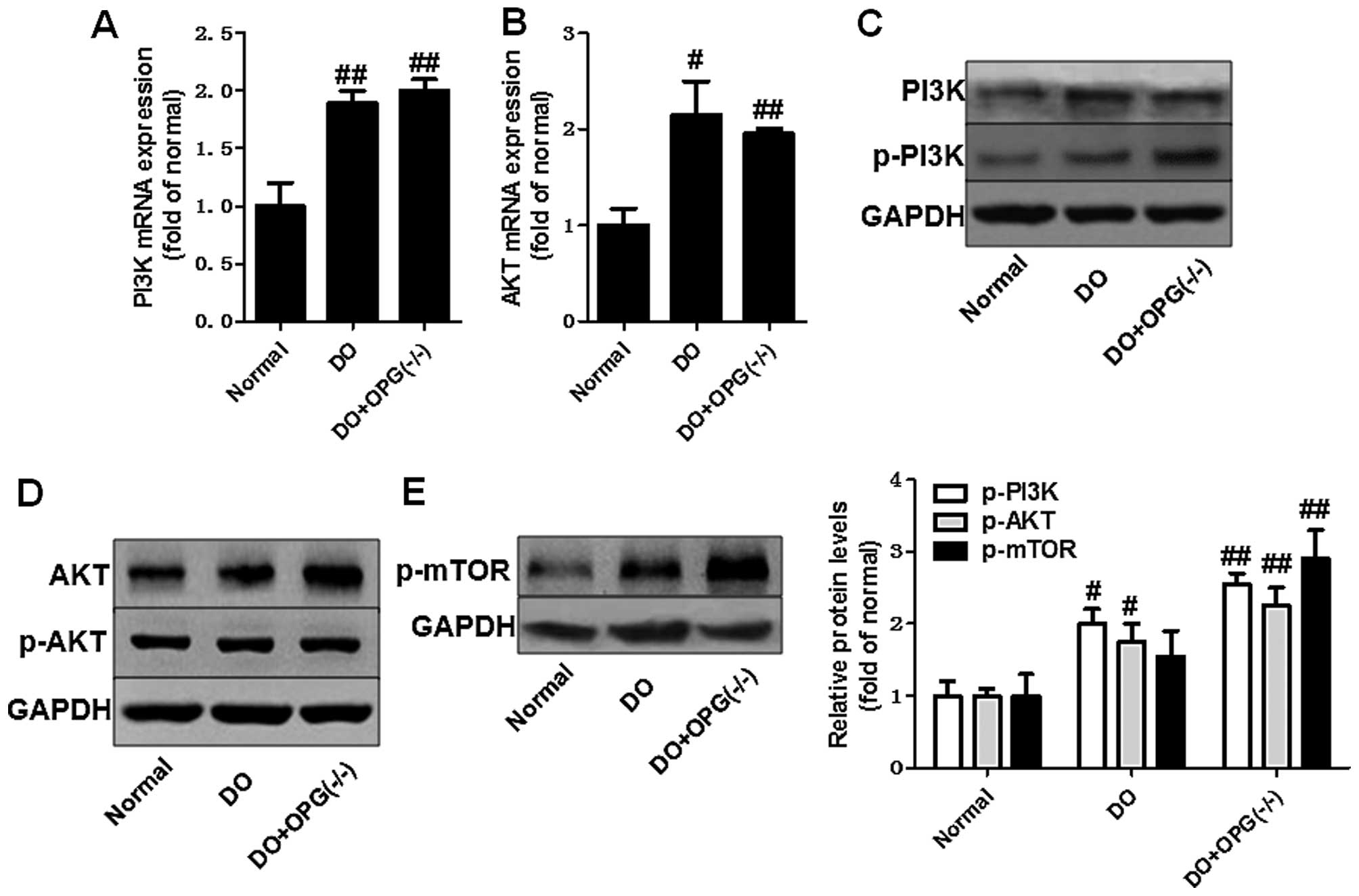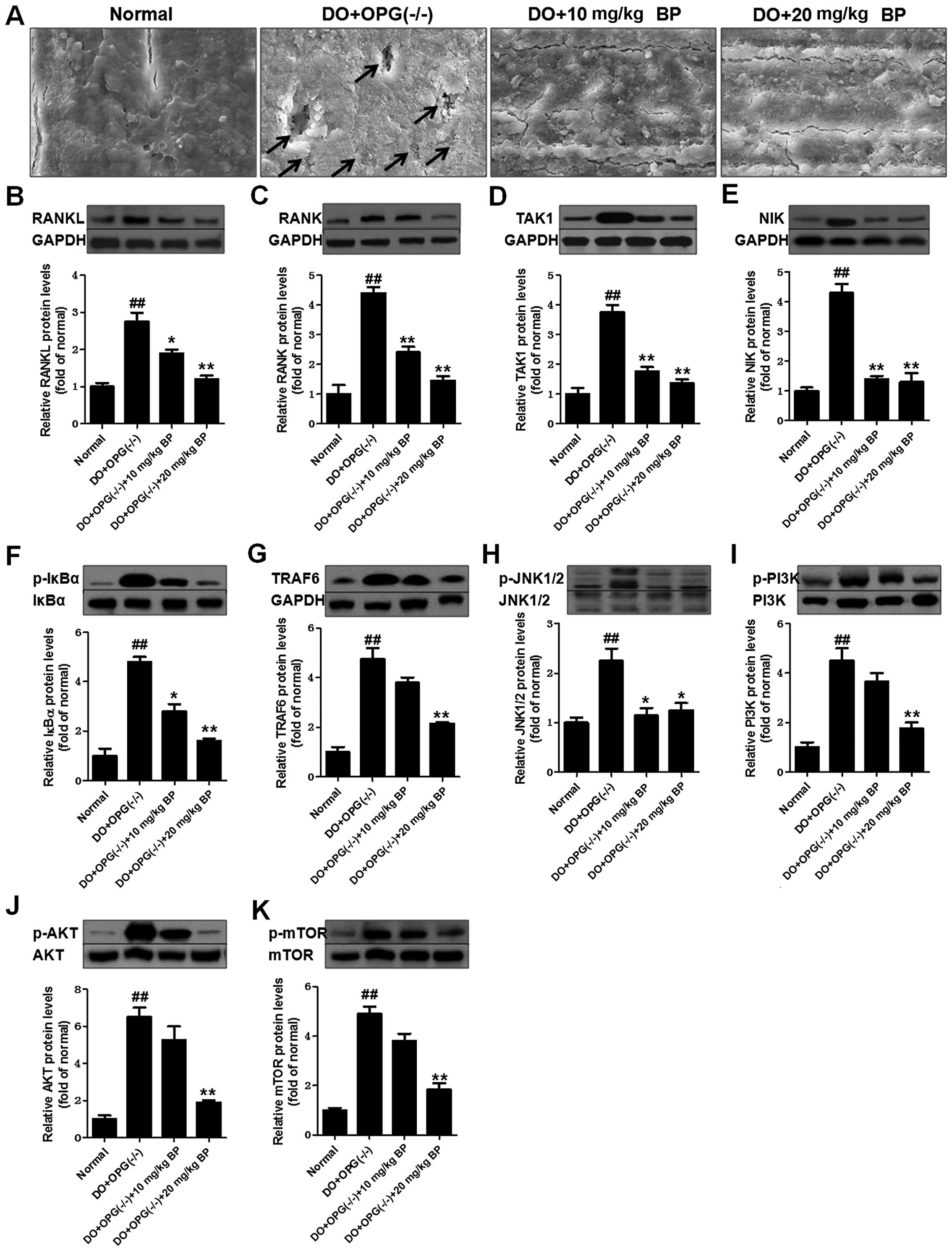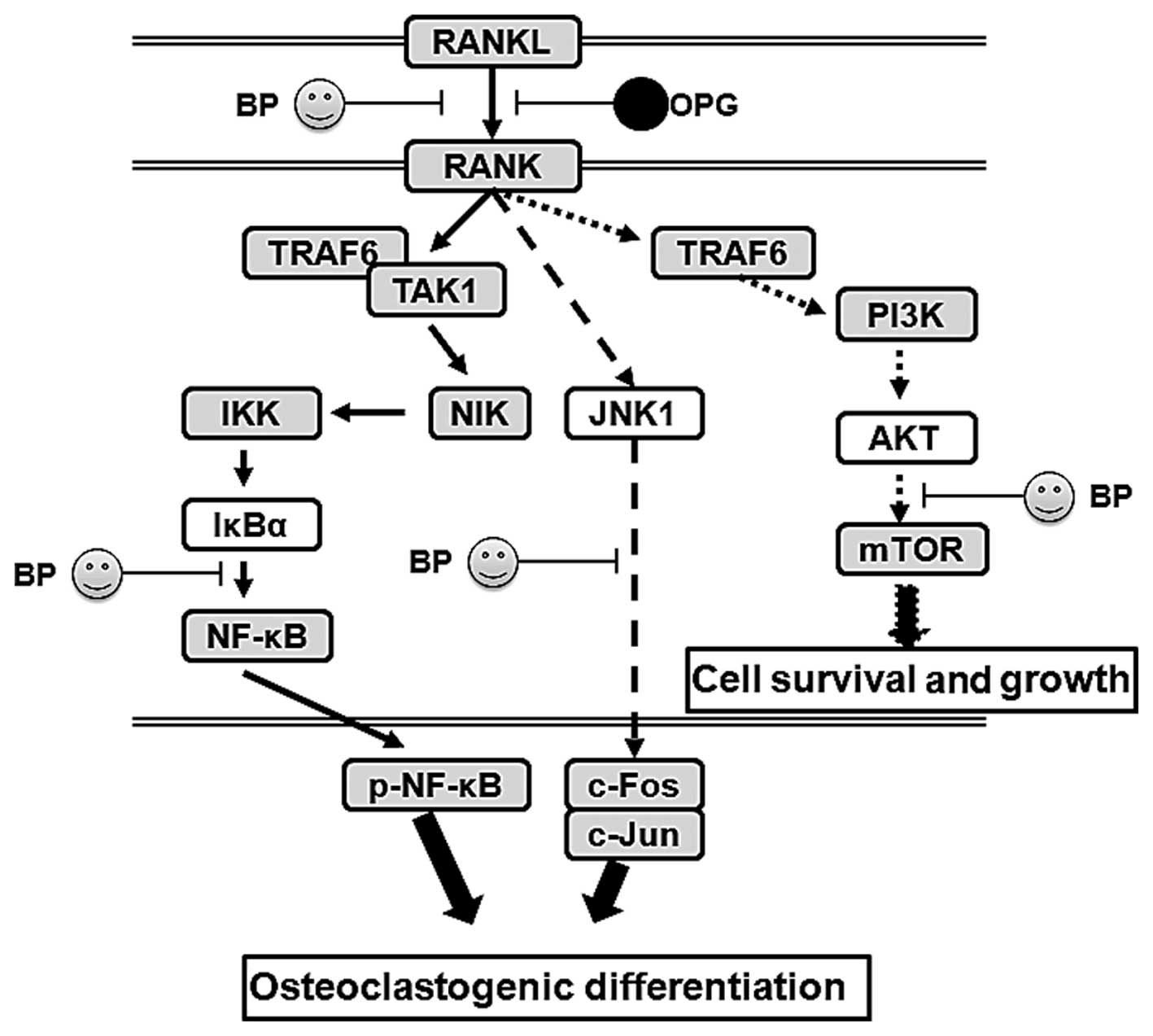|
1
|
Marcus R: Post-menopausal osteoporosis.
Best Pract Res Clin Obstet Gynaecol. 16:309–327. 2002. View Article : Google Scholar : PubMed/NCBI
|
|
2
|
Mullin BH, Prince RL, Dick IM, Hart DJ,
Spector TD, Dudbridge F and Wilson SG: Identification of a role for
the ARHGEF3 gene in postmenopausal osteoporosis. Am J Hum Genet.
82:1262–1269. 2008. View Article : Google Scholar : PubMed/NCBI
|
|
3
|
Reppe S, Refvem H, Gautvik VT, Olstad OK,
Høvring PI, Reinholt FP, Holden M, Frigessi A, Jemtland R and
Gautvik KM: Eight genes are highly associated with BMD variation in
postmenopausal Caucasian women. Bone. 604–612. 2010. View Article : Google Scholar
|
|
4
|
Jemtland R, Holden M, Reppe S, Olstad OK,
Reinholt FP, Gautvik VT, Refvem H, Frigessi A, Houston B and
Gautvik KM: Molecular disease map of bone characterizing the
postmenopausal osteoporosis phenotype. J Bone Miner Res.
26:1793–1801. 2011. View
Article : Google Scholar : PubMed/NCBI
|
|
5
|
Chao TH, Yu HN, Huang CC, Liu WS, Tsai YW
and Wu WT: Association of interleukin-1 β (−511C/T) polymorphisms
with osteoporosis in postmenopausal women. Ann Saudi Med.
30:437–441. 2010.PubMed/NCBI
|
|
6
|
Finkelstein JS, Brockwell SE, Mehta V,
Greendale GA, Sowers MR, Ettinger B, Lo JC, Johnston JM, Cauley JA,
Danielson ME and Neer RM: Bone mineral density changes during the
menopause transition in a multiethnic cohort of women. J Clin
Endocrinol Metab. 93:861–868. 2008. View Article : Google Scholar
|
|
7
|
Roy DK, Berry JL, Pye SR, Adams JE,
Swarbrick CM, King Y, Silman AJ and O'Neill TW: Vitamin D status
and bone mass in UK South Asian women. Bone. 40:200–204. 2007.
View Article : Google Scholar
|
|
8
|
Bone HG, Greenspan SL, McKeever C, Bell N,
Davidson M, Downs RW, Emkey R, Meunier PJ, Miller SS, Mulloy AL, et
al: Alendronate and estrogen effects in postmenopausal women with
low bone mineral density. Alendronate/Estrogen Study Group. J Clin
Endocrinol Metab. 85:720–726. 2000.PubMed/NCBI
|
|
9
|
Slemenda C, Longcope C, Peacock M, Hui S
and Johnston CC: Sex steroids, bone mass, and bone loss. A
prospective study of pre-, peri-, and postmenopausal women. J Clin
Invest. 97:14–21. 1996. View Article : Google Scholar : PubMed/NCBI
|
|
10
|
Wolff I, van Croonenborg JJ, Kemper HC,
Kostense PJ and Twisk JW: The effect of exercise training programs
on bone mass: a meta-analysis of published controlled trials in
pre- and postmenopausal women. Osteoporos Int. 9:1–12. 1999.
View Article : Google Scholar : PubMed/NCBI
|
|
11
|
Clowes JA, Riggs BL and Khosla S: The role
of the immune system in the pathophysiology of osteoporosis.
Immunol Rev. 208:207–227. 2005. View Article : Google Scholar : PubMed/NCBI
|
|
12
|
Cavalli L and Brandi ML: Age- and
gender-related macro- and micro-architecture changes in bone
structure and implications for treatment. Int J Clin Rheumatol.
6:359–369. 2011. View Article : Google Scholar
|
|
13
|
Sanders S and Geraci SA: Osteoporosis in
postmenopausal women: Considerations in prevention and treatment:
(Women's health series). South Med J. 106:698–706. 2013. View Article : Google Scholar : PubMed/NCBI
|
|
14
|
Hofbauer LC, Brueck CC, Singh SK and
Dobnig H: Osteoporosis in patients with diabetes mellitus. J Bone
Miner Res. 22:1317–1328. 2007. View Article : Google Scholar : PubMed/NCBI
|
|
15
|
Leidig-Bruckner G and Ziegler R: Diabetes
mellitus a risk for osteoporosis? Exp Clin Endocrinol Diabetes.
109(Suppl 2): S493–S514. 2001. View Article : Google Scholar : PubMed/NCBI
|
|
16
|
McLean RR: Proinflammatory cytokines and
osteoporosis. Curr Osteoporos Rep. 7:134–139. 2009. View Article : Google Scholar : PubMed/NCBI
|
|
17
|
Huh JE, Lee WI, Kang JW, Nam D, Choi DY,
Park DS, Lee SH and Lee JD: Formononetin attenuates
osteoclastogenesis via suppressing the RANKL-induced activation of
NF-κB, c-Fos, and nuclear factor of activated T-cells cytoplasmic 1
signaling pathway. J Nat Prod. 77:2423–2431. 2014. View Article : Google Scholar : PubMed/NCBI
|
|
18
|
Oh KW: Diabetes and Osteoporosis. Korean
Diabetes J. 33:169–177. 2009.In Korean. View Article : Google Scholar
|
|
19
|
Zheng M, Ge Y, Li H, Yan M, Zhou J and
Zhang Y: Bergapten prevents lipopolysaccharide mediated osteoclast
formation, bone resorption and osteoclast survival. Int Orthop.
38:627–634. 2014. View Article : Google Scholar :
|
|
20
|
Perez RM: Anti-inflammatory activity of
compounds isolated from plants. Scientific World Journal.
1:713–784. 2001. View Article : Google Scholar
|
|
21
|
Peng X, Nie Y, Wu J, Huang Q and Cheng Y:
Juglone prevents metabolic endotoxemia-induced hepatitis and
neuroinflammation via suppressing TLR4/NF-κB signaling pathway in
high-fat diet rats. Biochem Biophys Res Commun. 462:245–250. 2015.
View Article : Google Scholar : PubMed/NCBI
|
|
22
|
Holstein P, Ellitsgaard N, Olsen BB and
Ellitsgaard V: Decreasing incidence of major amputations in people
with diabetes. Diabetologia. 43:844–847. 2000. View Article : Google Scholar : PubMed/NCBI
|
|
23
|
Romero-Aroca P: Managing diabetic macular
edema: The leading cause of diabetes blindness. World J Diabetes.
2:98–104. 2011. View Article : Google Scholar : PubMed/NCBI
|
|
24
|
Shoji T, Emoto M, Shinohara K, Kakiya R,
Tsujimoto Y, Kishimoto H, Ishimura E, Tabata T and Nishizawa Y:
Diabetes mellitus, aortic stiffness, and cardiovascular mortality
in end-stage renal disease. J Am Soc Nephrol. 12:2117–2124.
2001.PubMed/NCBI
|
|
25
|
Schneider PA, Caps MT, Ogawa DY and Hayman
ES: Intraoperative superficial femoral artery balloon angioplasty
and popliteal to distal bypass graft: an option for combined open
and endovascular treatment of diabetic gangrene. J Vasc Surg.
33:955–692. 2001. View Article : Google Scholar : PubMed/NCBI
|
|
26
|
Balkau B, Shipley M, Jarrett RJ, Pyörälä
K, Pyörälä M, Forhan A and Eschwège E: High blood glucose
concentration is a risk factor for mortality in middle-aged
nondiabetic men. 20-year follow-up in the Whitehall Study, the
Paris Prospective Study, and the Helsinki Policemen Study. Diabetes
Care. 21:360–367. 1998. View Article : Google Scholar : PubMed/NCBI
|
|
27
|
Sumner CJ, Sheth S, Griffin JW, Cornblath
DR and Polydefkis M: The spectrum of neuropathy in diabetes and
impaired glucose tolerance. Neurology. 60:108–111. 2003. View Article : Google Scholar : PubMed/NCBI
|
|
28
|
Kim C, Newton KM and Knopp RH: Gestational
diabetes and the incidence of type 2 diabetes: a systematic review.
Diabetes Care. 25:1862–1868. 2002. View Article : Google Scholar : PubMed/NCBI
|
|
29
|
Moran C, Münch G, Forbes JM, Beare R,
Blizzard L, Venn AJ, Phan TG, Chen J and Srikanth V: Type 2
diabetes, skin autofluorescence, and brain atrophy. Diabetes.
64:279–283. 2015. View Article : Google Scholar
|
|
30
|
Zinman B, Lachin JM and Inzucchi SE:
Empagliflozin, cardiovascular outcomes, and mortality in type 2
diabetes. N Engl J Med. 374:10942016.PubMed/NCBI
|
|
31
|
Wu YY, Xiao E and Graves DT: Diabetes
mellitus related bone metabolism and periodontal disease. Int J
Oral Sci. 7:63–72. 2015. View Article : Google Scholar : PubMed/NCBI
|
|
32
|
Li R, Xu W, Luo S, Xu H, Tong G, Zeng L,
Zhu D and Weng J: Effect of exenatide, insulin and pioglitazone on
bone metabolism in patients with newly diagnosed type 2 diabetes.
Acta Diabetol. 52:1083–1091. 2015. View Article : Google Scholar : PubMed/NCBI
|
|
33
|
Wu QQ, Xu M, Yuan Y, Li FF, Yang Z, Liu Y,
Zhou MQ, Bian ZY, Deng W, Gao L, et al: Cathepsin B deficiency
attenuates cardiac remodeling in response to pressure overload via
TNF-α/ASK1/JNK pathway. Am J Physiol Heart Circ Physiol.
308:H1143–H1154. 2015. View Article : Google Scholar : PubMed/NCBI
|
|
34
|
Weston CR and Davis RJ: The JNK signal
transduction pathway. Curr Opin Cell Biol. 19:142–149. 2007.
View Article : Google Scholar : PubMed/NCBI
|















